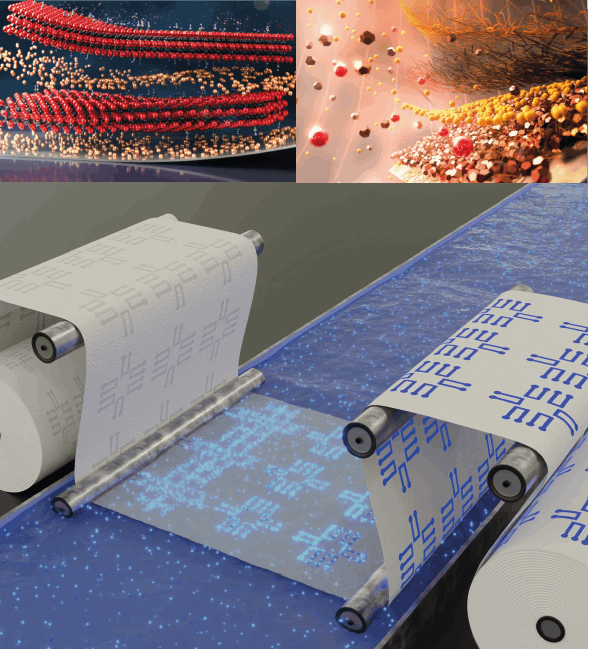Kursen utgörs av en föreläsningsserie med kopplade litteraturuppgifter och seminarier.
Introduktion och definition av nästa generations elektrooptiska enheter, och deras skillnader mot CMOS samt deras potential för att skapa mer hållbara samhällen och för grundläggande vetenskap.
Introduktion till elektro/optiska makromolekyler och nanomaterial:
- Klassificering av material och grundläggande fysikaliska egenskaper
- Elektroaktiva polymerer.
- Kolnanorör och andra 1D-nanomaterial.
- Grafen, MXene och andra 2D-nanomaterial.
Introduktion till tillverkningsmetoder, deras klassificering och olika metoder att uppnå strukturella enheter i de olika längdskalor som är nödvändigt för att uppnå funcktion. Djupgående beskrivning av olika tillverknigsteknik i ”bottom-up” och ”to-down”:
- ”bottom-up”: Fotolitografi och mjuk litografi.
- ”bottom-up”: Additiv tillverkning och 3D-utskrift.
- ”top-down”: Självmontering inklusive LbL, biopolymermontering.
Djupgående beskrivning och exempel på olika enheter:
- Nanostrukturerade energilagringsenheter, inklusive batterier.
- Kemiska sensorer och biosensorer.
- Aktuatorer och avancerade nanokompositer.
- Tunnfilmselektronik inklusive flexibel elektronik, bärbar elektronik och tryckt elektronik.
